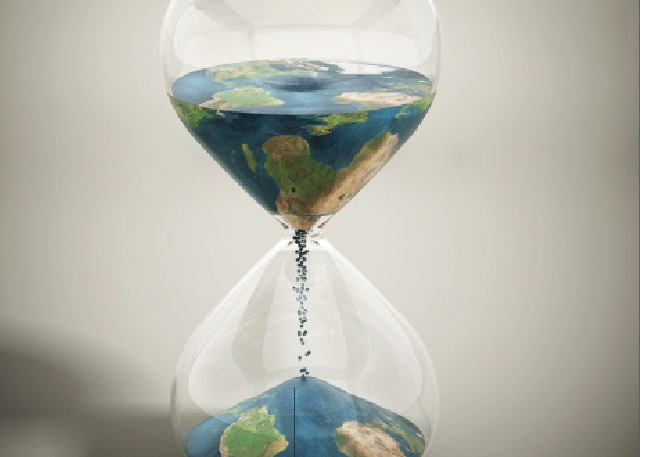The time is now
Joyce Msuya, acting executive director of the United Nations Environment Programme, says that it is time to move beyond pledging and politicking, so the G20 can lead the fight on climate action
An old African proverb says, “Because the river chose to flow alone, it got bent on its way.”
This proverb symbolises the challenge in addressing the existential crisis of our times: climate change. Without the G20’s leadership, we do not stand a fighting chance of limiting warming to 1.5°C.
Science is clear on why we have no other option. According to the Intergovernmental Panel on Climate Change, we need to quickly and drastically reduce our climate-warming emissions. UN Environment’s Emissions Gap Report shows just how much we need to step up global action to address climate change.
We must increase our climate actions five-fold to limit temperature rise to 1.5°C or risk triggering extreme, adverse climate impacts. This calls for the biggest transformation in history, changing the way we live and consume, how we extract, how we dispose of our waste and what we value as humans on planet Earth.
Time is running short. We are past pledging and politicking. At stake are life and society as we know them today. But if the science is clear, so too are the benefits that such a transformation brings. Bold environmental action does not limit economic growth; it ensures growth thrives, is sustainable and “leaves no one behind”.
Important solutions to the climate crisis and biodiversity loss will come from innovation. The G20 has scripted some of the biggest successes in our lifetime, and there is no reason why it cannot invent climate action. Indeed, there are already many examples: Sweden aims to become the world’s first fossil-free welfare state, and the United Kingdom’s electricity grid could operate with zero carbon by 2025.
The solutions are well within our grasp. Can political will catch up?
There are three complex environmental challenges we must tackle with courage and resolve: addressing climate change, stopping biodiversity loss, and awakening the world’s consumers and producers to the reality of their environmental footprint. How do we do this in ways that cut across silos and deliver far-reaching impacts? How do we move from working on issues to taking on systems, and thinking about how we can fundamentally change them to ensure a healthy future for our children and grandchildren?
We see five critical entry points for systemic change.
One, we must transform our economies, breaking the link between growth and increased resource use and drastically reduce our dependence on carbon. It is time to embrace circularity: reducing waste, reusing materials, and redesigning how we create value from products and services.
Two, we must reset our relationship with nature. We must do so by acknowledging the value of our forests, oceans and other natural capital in our financial accounts; informing all our infrastructure decisions with environmental
considerations; transforming the way we produce and consume food and make our diets more sustainable; and driving new global efforts to protect and restore wildlife and wild places, as well as the many benefits that those resources provide to human beings.
Three, we must fundamentally rethink how our cities function – from waste disposal to clean mobility to urban planning. Smart, sustainable urban planning represents a tremendous opportunity to reduce the strain we put on the planet, while improving the quality of life of billions of people, especially in low-income countries, which will account for 90% of the predicted urban growth.
Fourth, the world must embrace clean cooling so that millions can live in health and comfort. As temperatures rise, the demand for air conditioning and refrigeration will skyrocket. Energy consumption of the cooling and heating sectors could multiply 33 times before the end of the century. We must break this vicious cycle. The G20 can be the hub of smart, accessible cooling technologies that improve people’s lives without harming the planet.
Fifth, we must turn the race for renewables into a sprint. Of all the electricity produced around the world, 66% still comes from dirty fossil fuels. By 2050, that figure must fall to single digits, and energy from renewables needs to soar.
Equally important is the G20’s role in financing the future we want – estimated to be about $2.5 trillion each year. The G20’s economic and political influence can unlock the investment we need to switch to low-carbon, resilient infrastructure. This shift can pay for itself. Shifting infrastructure investment from brown to green and other reforms can increase global gross domestic product by as much as 5% by 2050, while cutting emissions.
At the UN Environment Assembly in Nairobi this year, countries laid the groundwork for a radical shift to a more sustainable future, where innovation will tackle environmental challenges, the use of throwaway plastics will be significantly reduced and development will no longer cost the earth. The G20 can lead the way.
If we can drive systemic change in these areas, we will contribute to lifting people out of poverty and building a safer, healthier, more inclusive world. By protecting the planet – as we have seen so often – we are also protecting its people.
Greta Thunberg recently said: “The climate crisis is both the easiest and the hardest issue we have ever faced.”
So it is time for us to choose which side of history we would prefer to be on.













